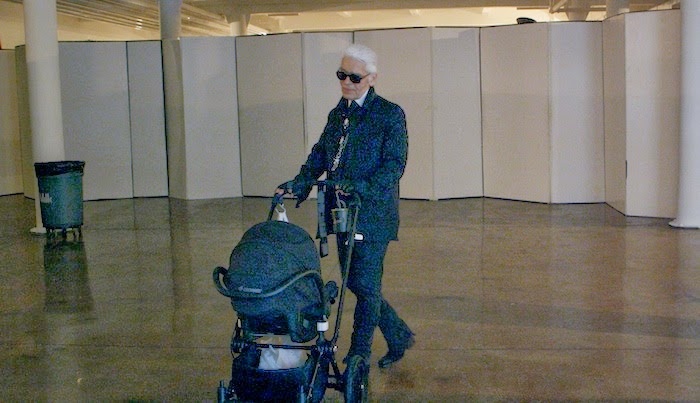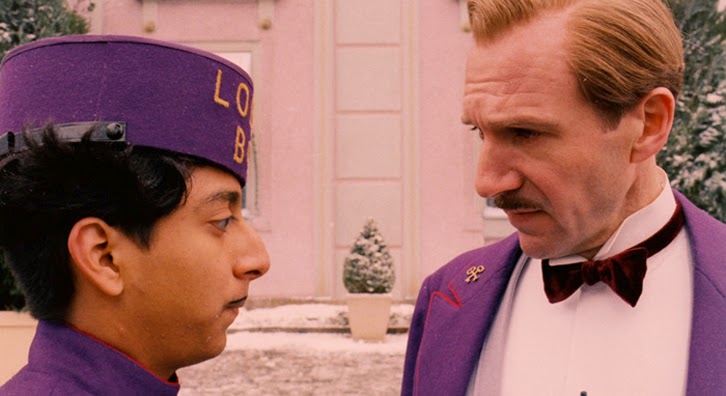 OK confession time. I'm an (ex) menswear designer and had more than my 5 minutes mixing with my peers and many of the stars in the fashion industry of my day but until today I had never come across Carine Roitfeld. But then I have never ever read US or UK Vogue let alone French Vogue where Ms Roitfeld was Editor in Chief for ten years until she stepped down in 2011. Now thanks to Fabien Constant's slightly adoring star-studded documentary that followed Ms Roitfeld as she broke free of the Conde Nast shackles and started her own free-spirited new venture with the launch of CR Magazine.
OK confession time. I'm an (ex) menswear designer and had more than my 5 minutes mixing with my peers and many of the stars in the fashion industry of my day but until today I had never come across Carine Roitfeld. But then I have never ever read US or UK Vogue let alone French Vogue where Ms Roitfeld was Editor in Chief for ten years until she stepped down in 2011. Now thanks to Fabien Constant's slightly adoring star-studded documentary that followed Ms Roitfeld as she broke free of the Conde Nast shackles and started her own free-spirited new venture with the launch of CR Magazine.
Before she ended up at Vogue it turns out that Ms Roitfeld worked as stylist with Mario Testino for some years and then with Tom Ford as a consultant and his muse at Gucci and Yves St Laurent. Her relationship with Ford is still very close and he in facts shoots and styles a whole article for the first issue of C.R.
It is impossible not to compare this movie with 'The September Issue' which covered the making of Vogue's biggest issue of the year starring the Ice Queen herself Anna Wintour. Ms Roitfeld is the antithesis of the US Vogue Editor and is infectiously warm, stridently enthusiastic and extremely talkative .... at least that's what M. Constant insists we believe.
As they film the very first meetings of the new team that Ms Roitfeld has assembled, the whole creative process is fascinating to watch more so for the frankness when she admits the ideas are not always forthcoming. She is very hands-on in all the photographic shoots ..... each one a sheer work of beauty, albeit completely over-the-top as she evidently has established somewhat of a reputation for her sex infused styling.
As M Constant's cameras follow Ms Roitfeld globe-trotting around the world he captures her at a Book Launch in Tokyo, sitting in the front row at the Runway Shows in Paris, and dressed up to the nines attending NY's fashion social highlight of the year, the Met Ball. Everywhere she goes there is the constant kissing and hugging not just with every major Fashion Designer she evidently knows very well, but a whole plethora of celebrities and rock singers who obviously consider her an close friend too. It's all slightly overwhelming at times as it seems that M Constant is determined to show us how very popular his favorite Diva is.
 Of all Ms Roitfeld's encounters in this film, none are more delightful than the ones she has with Karl Lagerfeld who she co-authored 'The Little Black Jacket Book' with. Up close the man is really really scary but the scene of him dressed up in his usual extreme garb and pushing a toddler in a stroller up and down when Ms Roitfeld's daughter brings her new new baby to a shoot is delightfully bizarre. Especially as he is heard complaining that 'she can't talk much'.
Of all Ms Roitfeld's encounters in this film, none are more delightful than the ones she has with Karl Lagerfeld who she co-authored 'The Little Black Jacket Book' with. Up close the man is really really scary but the scene of him dressed up in his usual extreme garb and pushing a toddler in a stroller up and down when Ms Roitfeld's daughter brings her new new baby to a shoot is delightfully bizarre. Especially as he is heard complaining that 'she can't talk much'.
It's an entertaining wee film even though it never gets too deep about anything or anybody. M.Constant touches on the reports that Conde Nast were doing everything possible to stop people from working on the new magazine but he sadly this lets this potentially juicy story drop without investigating it further. Whether he has captured the real essence of Ms Roitfeld is not something that I feel qualified to comment on, but what he does show is an exceptionally talented fashion maven who looks like she is a bundle of fun to be with too.
Available on Amazon
★★★★★★★★
Available on Amazon
★★★★★★★★




.jpeg)


.jpeg)

.jpeg)



.jpeg)

.jpeg)





.jpeg)
.jpeg)

.jpeg)



